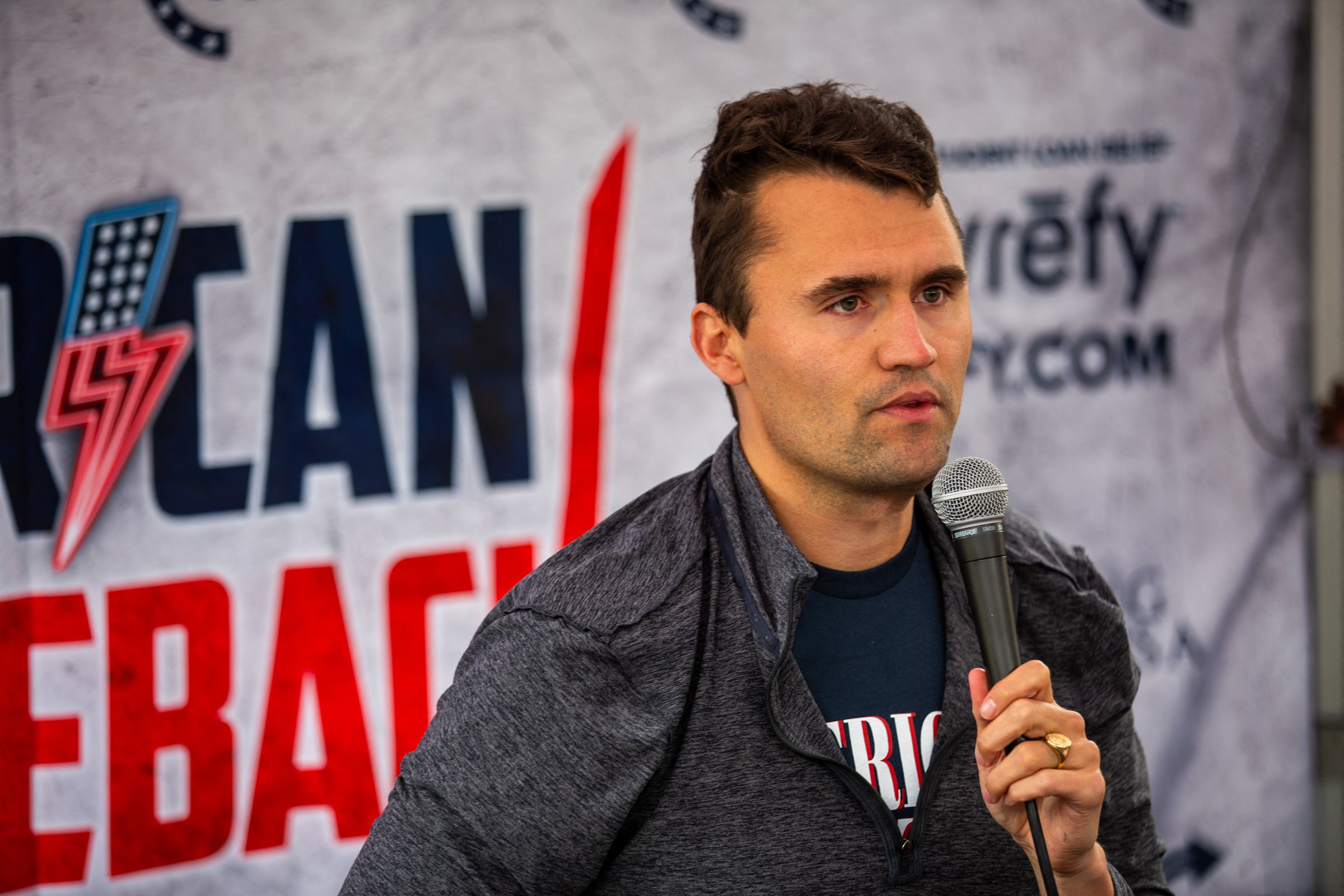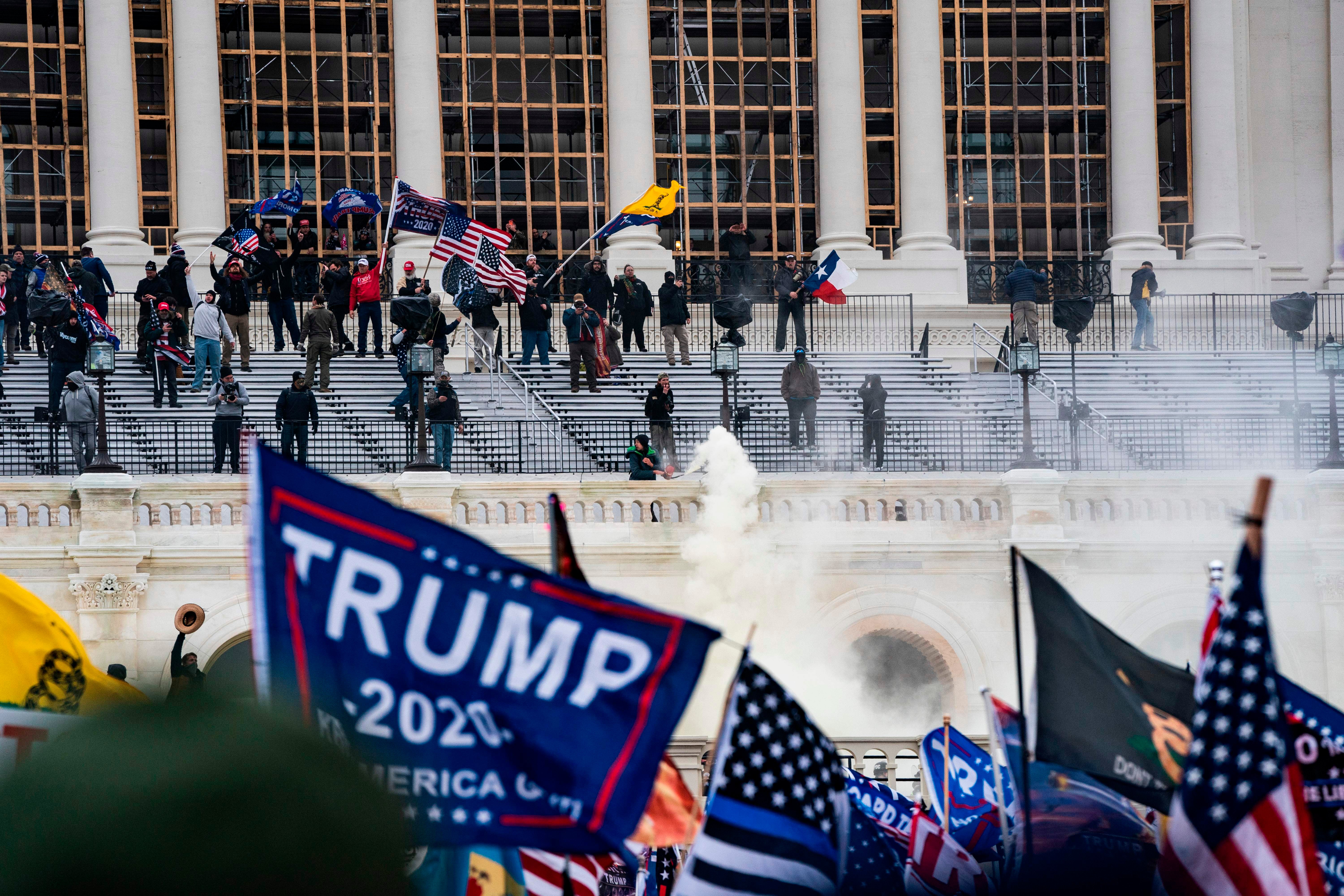Podcaster Joe Rogan is concerned the U.S. is coming apart at the seams.
He warned in a Tuesday episode featuring Brian Redban that the assassination in September of conservative activist Charlie Kirk convinced him America was on the road to a civil war.
On a scale of one to 10, Rogan suggested, “This might be like step seven on the way to a bona fide civil war.”
“Regular people celebrating somebody getting murdered in front of their wife and kid on television in front the whole world, as soon as you celebrate that, like man, you’re in dark territory,” Rogan added.
The podcaster called on Americans to find ways to talk out their differences instead of condoning violence against those with whom they disagree.
“You don’t know what’s right. I don’t know what’s right. Nobody knows that’s right,” Rogan concluded. “The only way you find out what’s right is you have to talk to people.”
Rogan isn’t the only one who thinks the U.S. may be heading down a violent road.
Billionaire investor Ray Dalio warned last month that rising government debt, wealth disparities, and social conflict could cause a civil war-like set of political and economic clashes.
Bipartisan majorities are expecting a political candidate to get assassinated in the next five years, according to a poll conducted last month by Politico and Public First.
The Politico poll also found that 24 percent of respondents think political violence is sometimes justified, a figure that jumps to more than one-third for those under age 45.

Between the January 6 insurrection at the Capitol and the 2024 election, there were at least 300 cases of political violence, a 2024 Reuters analysis found, the largest surge in such attacks since the 1970s.
While the Trump administration has been quick to blame the left for the trend, the nature of the problem is far more nuanced than that, Shane Burley, an author and journalist who writes about fascism and right-wing political movements, recently told The Independent.
He pointed to a variety of “profound social changes” as driving the surge, including deep partisanship, economic dispossession, ideological and geographic segregation, virulent online conspiracy theories, poor mental health infrastructure, and dissolving social structures such as unions.
There’s also been an injection of violence directly into our political process itself, whether it’s the Trump administration sending masked ICE agents and National Guardsmen into largely Democratic cities to carry out immigration enforcement or the increasingly common presence of armed militiamen and ideological street gangs at protests.

“People engage in violence when they are not part of a stable social system,” Burley told The Independent.
“Gun violence is really a symptom of a real larger social problem that you’re going to have to deal with holistically, and that’s really unfortunate because we are nowhere near dealing with those problems in a holistic way.”
Left-wing attacks and plots have been on the rise recently, though a large body of research shows that right-wing extremists and jihadists have killed far more people than those associated with any other political cause in the U.S. since 9/11.
More than 600,000 people are estimated to have been killed during the 19th century Civil War, the deadliest conflict in American history.







